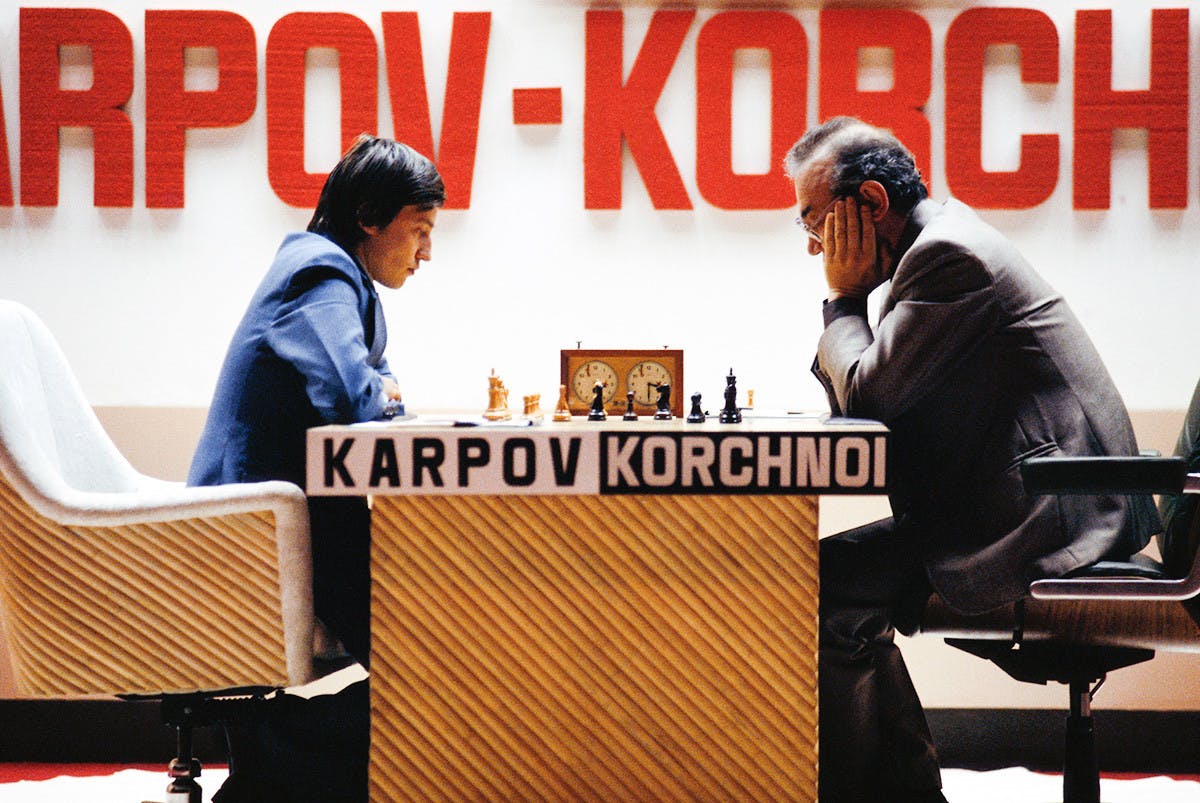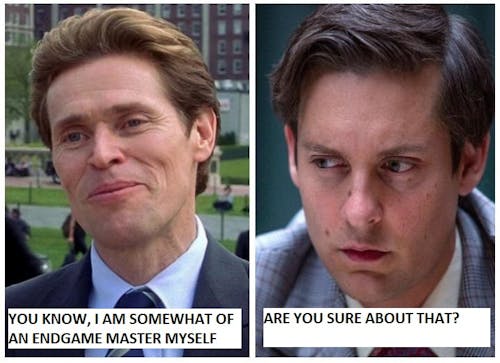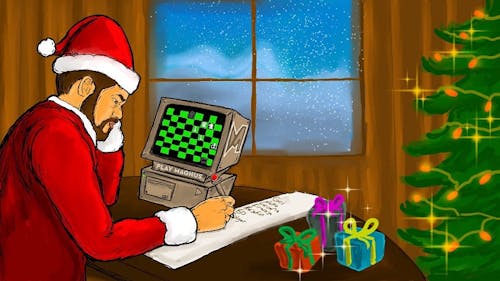Are you sure you want to delete your account?
(This will permanently delete all of your data - purchases, game scores, ratings, etc)
Change your username
Your current username is: guest
Change your account email address
Your current account email is:
Redeem your Fampay code here!
Use your Fampay code to get access to the Play Magnus Plus Membership!

Play a Chess Match
In part, this blog post was inspired by the movie “The World Champion” that is in theatres in Russia right now. It is based on the World Chess Championship match between Anatoly Karpov and Viktor Korchnoi, held in Baguio, Philippines, in 1978. I haven’t seen the film yet and don’t have high expectations based on what I have read about it. Still, I will check it out since movies about chess are a rare species. Anyway, Anatoly Karpov is a 6-time World Chess Champion and one of the best match players of all time. Interestingly enough, he was introduced to matches early in his chess career. For example, Anatoly fondly recalls a “serious” match he played in the city championship final when he was still a kid.
Most of us will never get to participate in the World Chess Championship title, the World Cup or any other event where the match system is used. One might wonder: is there any reason for playing a match at all if you may never have to do it in your competitive practice?
Here are the top-9 arguments why you may want to give this format a try:
Take your game to the next level. Matches improve your fighting spirit and help you learn more about yourself and your potential opponents. If the partners are of more or less equal strength, they are likely to discover the Achilles’ heels of each other, hence providing a plan for future improvement. Also, the matches themselves are beneficial for the chess development of the players since they help develop those chess muscles as you play in an intense environment.
Find out who is the better player. Quite often, there is some friendly rivalry between peers if their chess expertise is similar. One game is not enough to find out who is the better player. A way to prove one’s superiority is to beat the opponent in a match spanning a relatively long distance. Of course, nowadays, such matches are more often played in blitz or even bullet, but good old matches with a classical time control are more indicative of a player’s true strength!
That being said, many users of the Play Magnus app believe that beating Magnus Carlsen at a certain age once means that they have “passed the test.” However, to show true dominance, you had better not get a single win and run away with it but crush Magnus in an actual match! Actually, he should be happy to take on you since his Instagram profile states explicitly: “Beating someone once isn’t revenge!”
Eliminate a specific weakness. This approach was advocated by Mikhail Botvinnik, who was known for playing serious training matches as part of the preparation for his World Chess Championship duels. For example, he suggested that someone who often gets into time trouble should play a training match, exclusively focusing in each game on time management. He also recommended using the method to get rid of other chess shortcomings.
Stay in shape. By far, not all of us play tournaments regularly enough. Training, playing blitz games, and other such means of staying in shape are not nearly as effective as real-life sparring.
Polish your openings. Let’s say you want to master a new opening. It will take a while until someone plays it against you. Also, you will not be prepared well enough due to a lack of practical experience. That’s why most of the pros use matches to test out new lines and get a feel of the opening. Of course, if you are aiming for this goal, you should discuss it in advance with your partner to know what type of positions will pop up on the board.
Have fun. Chess matches are quite entertaining and memorable. You can hold your own “World Championship” and fight valiantly for the title against your friend! Just make sure you don’t spoil your personal relationships this way!
I remember how back in the day, we played a self-proclaimed “Chess & Poker World Championship" match against one of my friends in Moscow. First came the chess portion, and then the Texas Hold’em. As far as I recall, it was a tense battle that I eventually lost on the combined standings, but being the runner-up of such a “prestigious” event didn’t hurt!
Roleplay. This takes the “have fun” principle to the next level. You and your opponent may consider dressing up for the occasion and recreating one of the legendary historical matches, including the ones that never took place. For example, let’s say you are a fan of Bobby Fischer, while your friend likes Anatoly Karpov. You don’t need a time machine to travel back to 1975 and see how the match between Fischer and Karpov would have unfolded! Just play it out yourself.
Mark time. In the pre-smartphone age, chess has been known to be a popular time killer. Even though it is a less relevant pastime these days, it is still there. People still play chess with their companions when traveling by train, even though you have to choose your partners with caution. Also, in certain prisons, playing chess is an activity allowed for convicts. On a separate note, this practice could potentially lead to some controversial rating manipulations.
Spice up your relationship. Growing up, I noticed some strange figures on my favorite chessboard. Something like 12.5-7.5 and so on. I asked my parents what this was all about. Even though they were by no means professional chess players and couldn’t be called ardent fans of the game, they still managed to play a reasonably large number of games between themselves in their youth. Of course, this tip has many limitations. First of all, the gap in chess proficiency should be relatively small, or else one might have to introduce a handicap into the equation. Secondly, not all people take chess defeats easily. There have been some grim stories about the loser murdering the victor, not to mention more prosaic outcomes such as quarreling. Nevertheless, it seems to have worked out fine for my parents, as they didn’t break up and are close to their 50th wedding anniversary!
Last but not least, here comes a warning. Matches require a lot of energy and dedication. It is not a good idea to prepare for a tournament by playing a match if you don’t have a reasonably large time gap ahead. Make sure to end the challenge at least two weeks before the tournament, or even a month in advance, so you have enough time to analyze the games and make adjustments.
Good luck and have fun playing chess matches!

